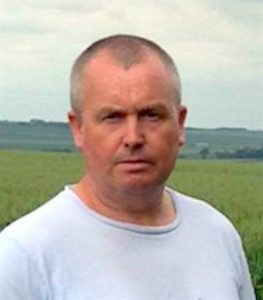“The truth is out there!” – but not always when you see your doctor
Speaking at the Awakenings Conference in Manchester on 26th August 2023, author Paul Sinclair movingly described his experiences of growing up in rural Yorkshire and various anomalous experiences that occurred to him and his family. One, in particular, struck a chord: a night when Paul saw four grey figures clustered round his bed, felt an acute pain to his back and woke up the following morning with three holes in his back. His wife observed how an ash-like substance emanated from the holes.
Paul went to his GP and was asked whether he could think of any reason why the holes had appeared. His answer – that there was not – is a vivid indication of the problem that people who have anomalous experiences face when accessing the medical system. To tell the whole truth risks not being believed – or worse, a possible mental health diagnosis.
Baffled, Paul’s doctor suspected a form of dermatitis, and Paul underwent various tests for a possible skin condition, including biopsies, all of which turned out to be negative.
 Paul Sinclair is a full-time researcher based in East Yorkshire and author of the Truth Proof series of books. His fourth book, ‘Night People’ is autobiographical and describes how he was repeatedly visited by anomalous phenomena.
Paul Sinclair is a full-time researcher based in East Yorkshire and author of the Truth Proof series of books. His fourth book, ‘Night People’ is autobiographical and describes how he was repeatedly visited by anomalous phenomena.
People lie to their doctors for a variety of reasons. A survey in 2020 by TermLife2Go (available here: What Men and Women Lie to Their Doctors About | TermLife2Go) found that 23% of respondents said that they had. Lies about smoking habits, exercise (or lack of it) and alcohol consumption were the top three topics for lying.
Why do people lie to their doctors? Surely, like the Catholic confessional, it is one of the few truly ‘safe spaces’ for us to share everything that we need to share? For three out of four people, they lie to avoid embarrassment. But for 22%, they lie because they believe that the doctor will not believe them.
Professor Thomas Rabeyron explains the reality behind the difficulty in reporting encounters with Unidentified Anomalous Phenomena (UAPs) and other anomalous experiences as follows:
“Many people experience intense fear that they are going crazy after an anomalous experience and ask: “does this experience mean I am crazy?” This anxiety is increased by the fact that the paranormal is often stigmatized in our society as a sign of madness and this is why many people avoid talking about these experiences with a psychiatrist or a psychologist.”
What this amounts to is a ‘pathologisation’ of anomalous experiences which can sometimes even induce a ‘secondary trauma’. That is, when a person attempts to share such an experience and finds that it is reduced to a mental disorder.
Professor Rayberon recommends that these unusual experiences should be welcomed in a way that conveys to the patient that they are understood, even when these experiences challenge the therapist’s conception of reality. Yet most mental health practitioners have not received specific training in listening constructively to these experiences.
Part of uNHIdden’s agenda will be to help develop strategies for better counselling and support for anyone affected by non-human intelligence and other forms of anomalous experience. This will require a multi-agency approach and efforts at all levels to reduce stigma and lessen the fear of telling the truth.
[1] Rabeyron, T, When the Truth Is Out There: Counseling People Who Report Anomalous Experiences, Front. Psychol., 04 January 2022, available at: Frontiers | When the Truth Is Out There: Counseling People Who Report Anomalous Experiences (frontiersin.org)
With thanks to Paul Sinclair for permission to feature his story. www.truthproof.webs.com
